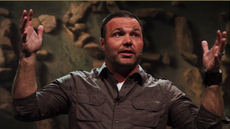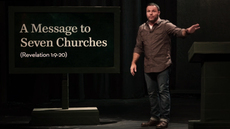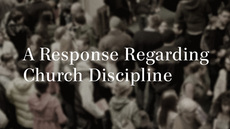With the Real Marriage book and sermon series, there have been many questions asked about why Grace and I talk so much about sex. I thought some clarification would be helpful.
When writing the book, we originally suggested to our publisher and agent that we create two books, one on marriage and another on sex. In response, they said if we did break down the material into two books then we’d run the risk of separating sex from marriage. I believe this was wise counsel, and it’s why Real Marriage is basically one book with two parts.
So, after talking about the biblical foundation of and friendship in marriage in the first part, we address the topic of sex detail, covering sexual sin, assault, and freedoms within marriage in the second. Here’s why.
1. Sex should be exclusive to marriage.
Sex between a husband and wife is the consummating act of the marriage covenant according to the Bible, and this act distinguishes marriage from all other relationships, like racquetball partners.
2. Grace and I want couples to think, talk, and pray about their intimacy with one another.
Some couples, perhaps because of embarrassment, shyness, or even bitterness, don’t talk about their intimacy often or thoroughly. We want to encourage married couples to have deeper and more heartfelt discussions about their life together.
3. The Bible doesn’t provide direct answers to all of our questions, let alone those that deal with sex.
Many couples have honest questions about sex and various sexual acts, and the questions they’re asking today are quite different from the questions that were asked in the past. Wanting to be faithful to God and the Bible, these couples seek godly counsel and there is a need to help them learn to think about what they do and don’t do based upon biblical principles and the guidance of the Holy Spirit.
4. The Bible does forbid certain things sexually, and many people are unaware of what is forbidden.
Having been a pastor for 15 years, I can assure you lots of people who claim to be Christians are doing things that the Bible forbids—and they’re not even aware of it. We can’t assume anything on these issues, but rather need to speak to them biblically, plainly, and thoroughly.
5. Public and private ministry should be the same.
The kinds of topics we address are very common to counselors and pastors. Yes, their answers are usually given privately and not publicly, but the problem is that outside of the church the same questions are being answered publicly. The next time you stand in a grocery store line, just read the headlines of men’s and women’s magazines and ask yourself, Should Christians not make biblical answers to sex as publicly accessible as these? In the absence of public biblical responses, people are getting their answers to their questions, but they’re often getting bad ones.
6. We want people to know what they may do, not what they should do.
We answer some specific questions in the book regarding what people may do. This is not a description of what we do, and it’s not a prescription or even recommendation for what married couples should do. Rather, it’s a look at the range of things that are permissible biblically, and we are encouraging married couples to discuss everything they might do and prayerfully agree on what they will do and will not do according to what they believe honors their conscience and most glorifies God.















